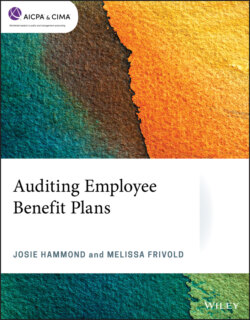Читать книгу Auditing Employee Benefit Plans - Josie Hammond - Страница 10
Welfare plans
ОглавлениеA plan of welfare benefits, by ERISA definition, comprises any one or more of the following benefits:
Medical, surgical, or hospital care
Sickness, accident, disability, death, or unemployment
Vacation
Apprenticeship or other training programs
Day care centers
Scholarship funds
Prepaid legal services
Any benefit described in Section 302(c) of the Labor Management Relations Act, 1947 (except pension)
ERISA provides for some other specific exemptions from all or part of ERISA, including the following:
Church and governmental plans
Certain payroll practices. Payroll practices are defined as various payments of compensation eitherin excess of normal pay for duties other than under ordinary circumstances, such as overtime pay, shift, holiday, and weekend premiums; oras normal compensation out of general assets for periods of time when the employee is physically or mentally unable to perform; oras normal compensation out of general assets for periods of time when the employee is physically or mentally able to perform, but on vacation, military or sabbatical leave, serving jury duty, or in training.
Other fringe benefits may include on-premises facilities, holiday gifts, employee discounts, hiring halls, remembrance funds, strike funds, industry advancement programs, and unfunded scholarship programs
Certain group or group-type insurance programs—such arrangements are frequently included with a cafeteria plan package. These plans are exempt ifno contributions are made by an employer or employee organization;participation is completely voluntary; andthe sole function of the employer or employee organization, without endorsement, is to permit the insurer to publicize the program, and to collect only administrative costs in connection with payroll deductions, services, or dues check-offs.
Unfunded or top-hat plans for a select group of management or highly compensated employees who are subject to ERISA but exempt from Form 5500 reporting and the related audit
The auditor needs to be familiar with these exemptions but should not be making the determination of whether a plan is or is not subject to ERISA, nor whether the plan is subject to audit. That determination is a complicated decision with sometimes unexpected and undesirable consequences that extend far beyond simply whether or not a Form 5500 or audit is required. The plan sponsor’s legal counsel should assist in determining which reporting requirements apply, if any, to a particular employee benefit plan.
